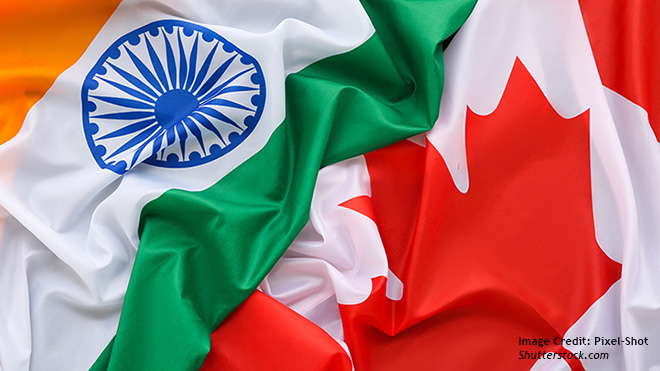
According to sources close to the matter, the surveillance involves electronic interception of private conversations, a practice that has sparked outrage in India. These revelations were reportedly made through security assessments and investigations into the activities of Indian consular staff in Canada. While the specific individuals targeted by the surveillance have not been named, the issue has prompted the Indian government to request heightened security protocols for its consular staff operating in Canadian territory.
This new development follows a series of diplomatic frictions between the two countries, which have strained relations over several issues, including the treatment of diplomatic staff and allegations of espionage. The surveillance of consular staff has escalated these tensions, as both nations engage in a war of words and countermeasures aimed at protecting their diplomatic interests.
The Indian government has reportedly demanded an explanation from Canadian authorities, questioning the legality of such surveillance activities. India views these actions as a breach of its sovereignty and an infringement on the diplomatic privileges afforded to its representatives. The Ministry of External Affairs has stressed the need for Canada to uphold international norms regarding the safety and privacy of foreign diplomats.
For Canada, the matter is particularly sensitive, as it has already faced criticism for its handling of other diplomatic disputes with India. The Canadian government has maintained a position of neutrality on various contentious issues, but the current situation has placed it in the difficult position of defending its intelligence-gathering practices without further antagonizing its relationship with India.
Experts suggest that the surveillance could be part of broader geopolitical maneuvering, where intelligence-gathering activities are often used as leverage in diplomatic negotiations. However, the interception of private communications has raised alarms about potential violations of privacy and international law. Both governments have refrained from making specific allegations regarding the motives behind the surveillance, but the atmosphere of mistrust between the two nations is palpable.
Indian diplomats stationed in Canada have been advised to take extra precautions, including using encrypted communication channels and limiting sensitive conversations to secure locations. The Indian Ministry of External Affairs has also urged Canadian authorities to ensure the safety of its diplomatic personnel, emphasizing the need for both sides to cooperate to prevent further incidents that could damage bilateral ties.
The issue of surveillance of consular staff is not unprecedented in international diplomacy. Similar incidents have occurred between other nations, particularly during periods of heightened tension or espionage accusations. However, the involvement of Canada in such a case has raised eyebrows due to the longstanding diplomatic ties between the two countries, which have traditionally been characterized by cooperation on trade, security, and cultural exchanges.
Canadian officials, however, have remained tight-lipped about the specifics of the surveillance and have not confirmed whether any of India’s consular staff were specifically targeted. This lack of transparency has only fueled speculation and added to the diplomatic fallout. For India, the stakes are high, as it seeks to safeguard the integrity of its diplomatic corps and assert its position on the global stage.
The Indian government has also warned that the incident could have broader implications for bilateral relations. India is concerned that the surveillance could be part of a broader trend of growing scrutiny of its activities abroad, potentially undermining its influence in international forums and negotiations. At the same time, Canada has reiterated its commitment to maintaining diplomatic channels open, while also balancing its national security interests.
In response to the mounting tension, India has increased its diplomatic outreach to other countries, urging them to take a firm stance on the matter and calling for greater respect for the principles of diplomacy and international law. India’s appeal has garnered support from some of its allies, who have expressed concern over the erosion of diplomatic norms in an increasingly polarized world.
The interception of private communications, especially among diplomatic personnel, is not only a breach of privacy but also a potential violation of the Vienna Convention on Diplomatic Relations, to which both India and Canada are signatories. This convention sets out the legal framework for the treatment of diplomatic staff and the inviolability of their communications. The Indian government has stressed that Canada must abide by its obligations under the treaty and provide assurances that similar incidents will not occur in the future.
Both India and Canada face a delicate balancing act as they navigate these diplomatic tensions. For India, ensuring the safety and security of its consular staff is paramount, while also addressing broader concerns about its diplomatic standing on the international stage. For Canada, the challenge lies in managing its intelligence-gathering practices without alienating a key trading partner and diplomatic ally.
